Review: THE CHERRY ORCHARD at Metropolitan Theatre Ensemble @ Warwick Theater

The Metropolitan Ensemble Theatre presents "The Cherry Orchard" by Anton Chekhov, adapted by Tom Stoppard, and directed by Todd Lanker. Chekov's final play, set in 1904 Russia, unravels the complexity of class and economic hierarchy through comedy, farce, satire, and eventually tragedy. However, amid sophisticated themes, the story moves quickly and is clear to understand. While the play is over 100 years old, there are certainly story lines that mirror some of the same headlines one would see in the news today. The MET's production bounds with energetic performances as it explores an emotionally rugged terrain.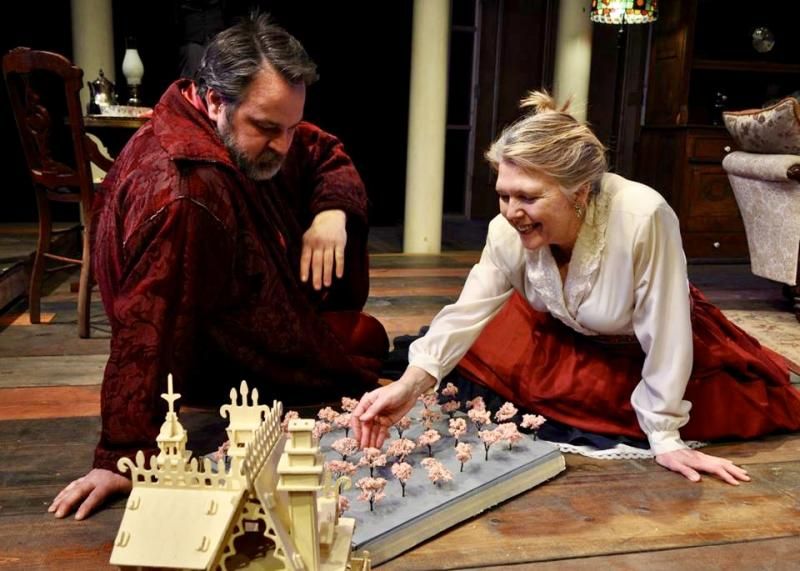
The story concerns an aristocratic Russian estate (The Cherry Orchard) and the woman who owns it. The main character returns to her family estate, after time in Paris, only to hear that the estate no longer has the money to pay it's bills. However, the news falls on deaf ears as no action is taken to prevent the property from being auctioned to pay it's debts. The woman's adopted daughter has a suitor, the son of a former serf, who is now a successful merchant. His struggles with committing to her because of her strong personality, and his discomfort with the fact that the roles are reversing, are one of the most intimate parts of the story.
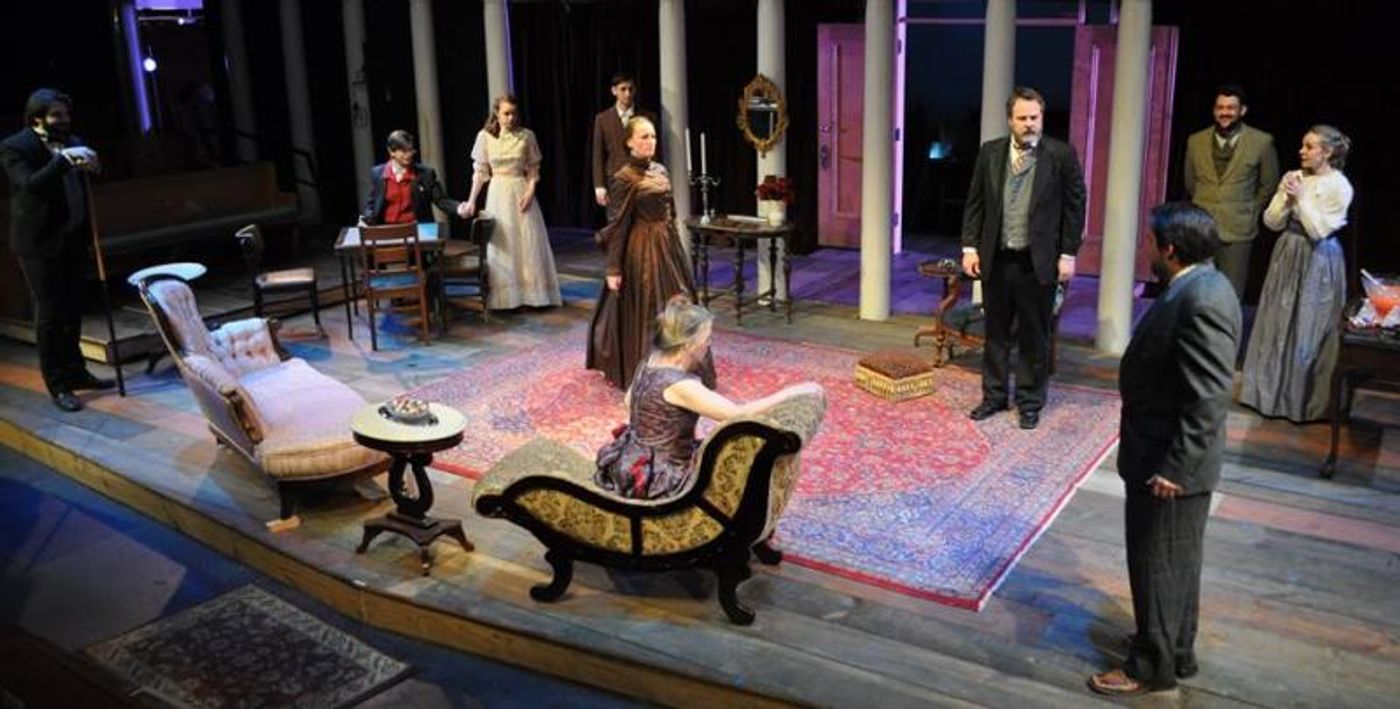
Years of the family's decadent life of leisure now render them impotent in the face of change. The family is forced to face reality when they cannot prevent the auction and the land is sold. As they learn the identity of the new owner, and his plans to rip out the cherry orchard in order to build, they contend with the end of their old family legacy. They leave under the echoing sound of the cherry trees being chopped down as they seek a new future on their own.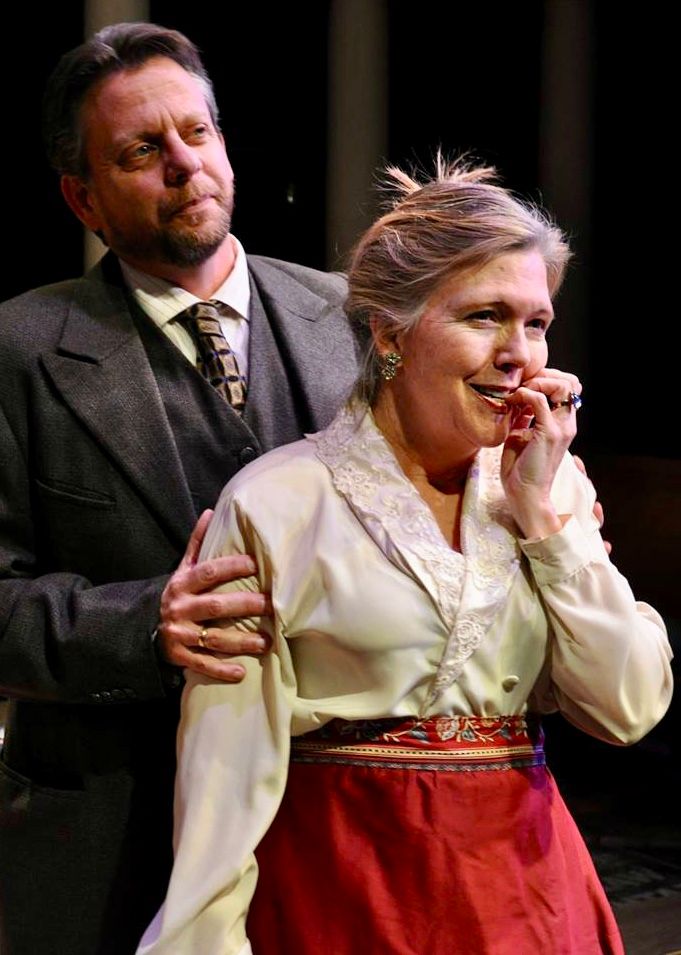
The central focus of the story dramatizes the plight of overindulgent children of the wealthy who never quite learn to appreciate what they've inherited, until their fortune is spent. Chekhov doesn't make the rich out to be bad people, but rather shows how the success of one generation doesn't necessarily continue to the next. The flip side to this is that those of lower rank can rise just as quickly as the rich can fall. However, change is difficult and quite often effects the dearest relationships in life the most.
Lanker's direction keeps the whirl and swirl of events moving quickly. In a story that could easily bog down, there are few slow moments here, and the few that exist are strategically placed to highlight the emotional aspect of the production. The ensemble performs well together and characters are understandable. However, given the rapid movement, there is little time to establish what the nature of all the relationships really are. There are multiple couplings and love interests that seem to start, but not gain much traction. Without developing solid footing, the audience has little to sympathize with the couples and their situations.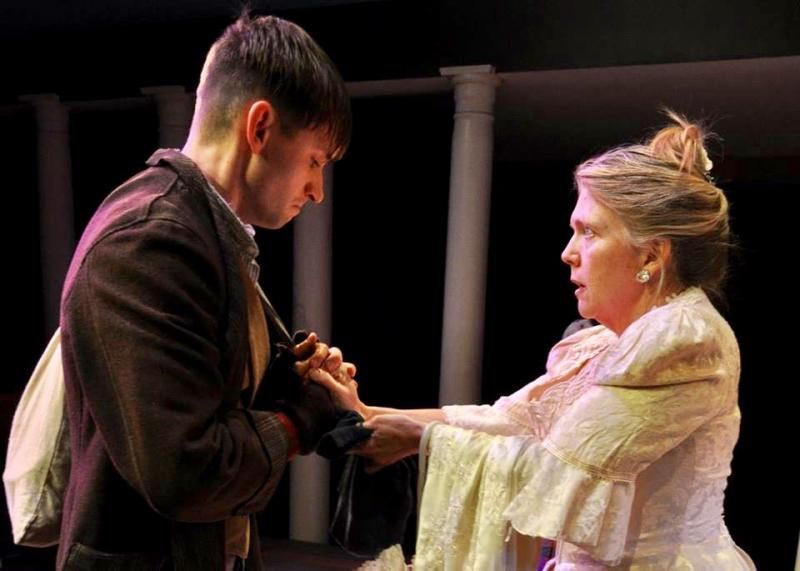
Shelley Wyche (Luibov) plays the aristocratic matriarch with melancholy (over her drowned son) and a bit overwhelmed (with trying to keep the estate together). Wyche captures the lovingly popular character by keeping her just gullible enough to understand how she could get herself into such a mess. Leah Wilczewski (Anya) takes on the role of the 17-year-old daughter with a protective tone toward her mother as she nurtures her romantic relationship to the young revolutionary Trofimov (played by Colin Henry Fewell). As the young love-struck heiress, Wilczewski floats across the stage with much the same naivety as her mother, yet with a puzzled look as she seeks to understand her lovers ideas. Fewell crafts a character in Trofimov that is equally naive in his overly idealistic zeal and awkward in his well-meaning efforts.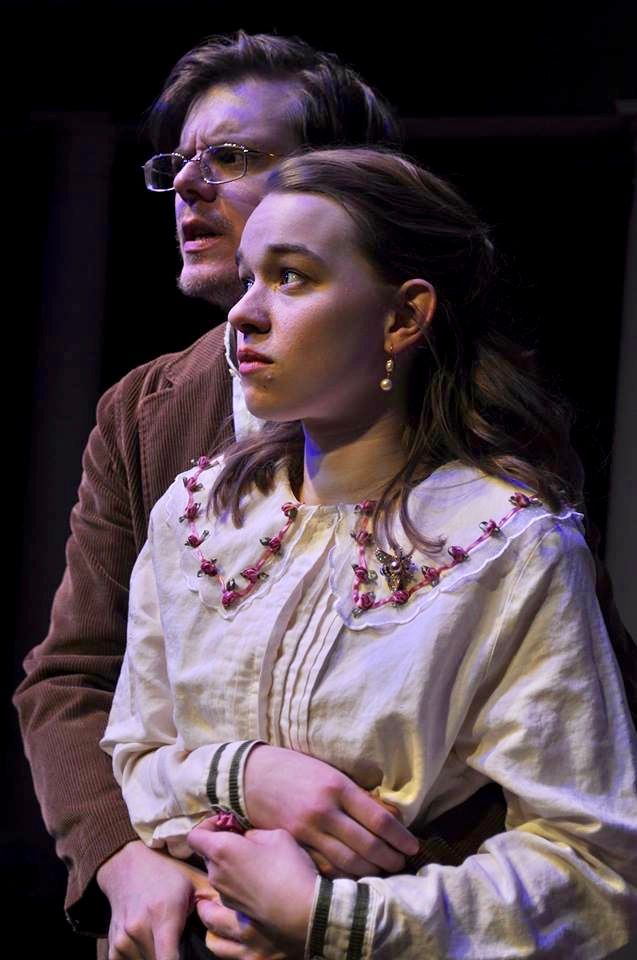
Dawn Youngs (Varya) is strong as the adopted daughter who now runs the estate. Youngs is adept at portraying a character with one foot on the family banana peel and the other on slippery romantic ice. It is Youngs interaction with Andy Penn (Lopakhin) that seems to draw the most empathy from the audience and they pair well as the conflicted paramours. Penn creates a strong character who we quickly understand forged his own success, but has a weakness with his personal relationships that still harbors a grudge.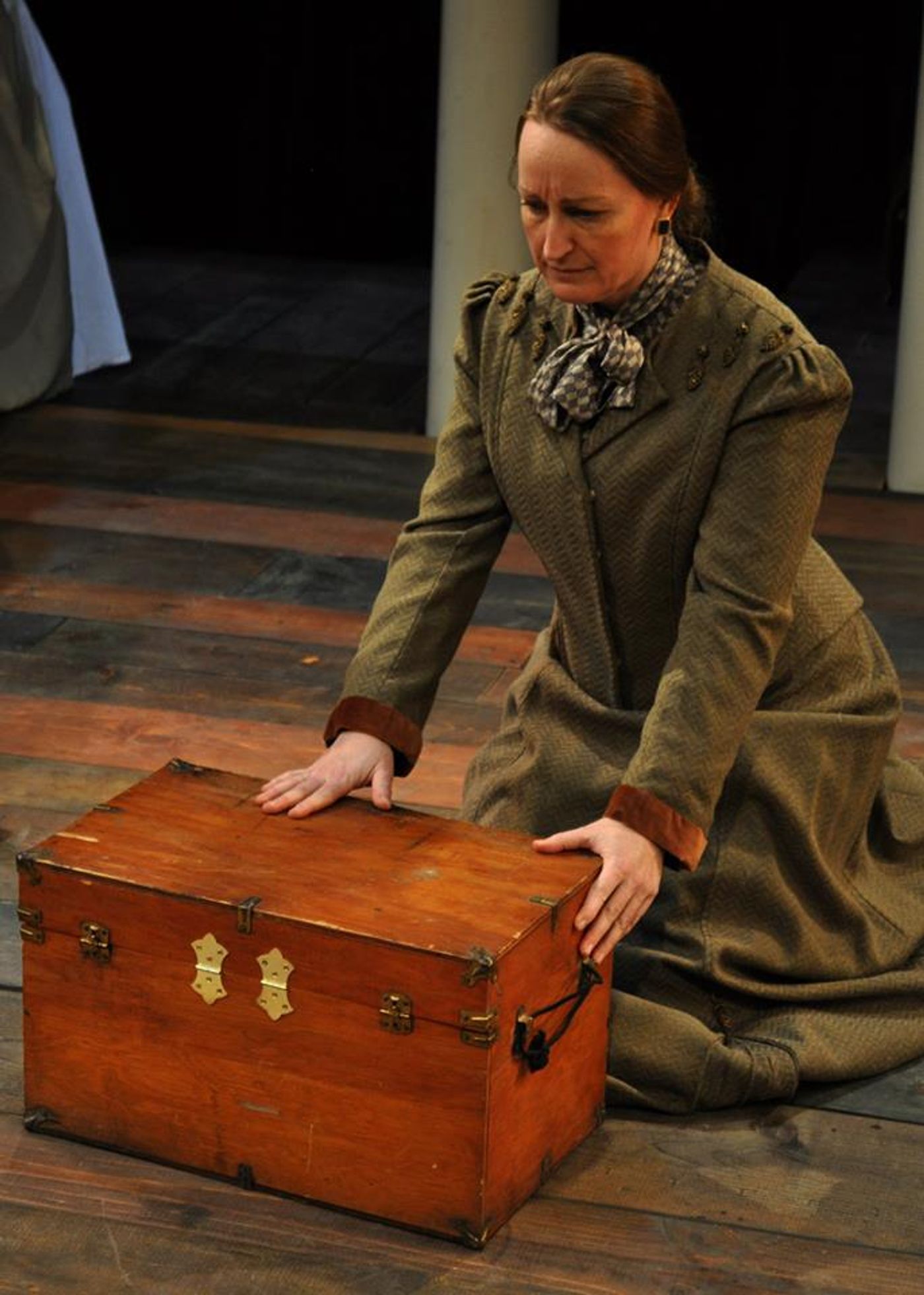
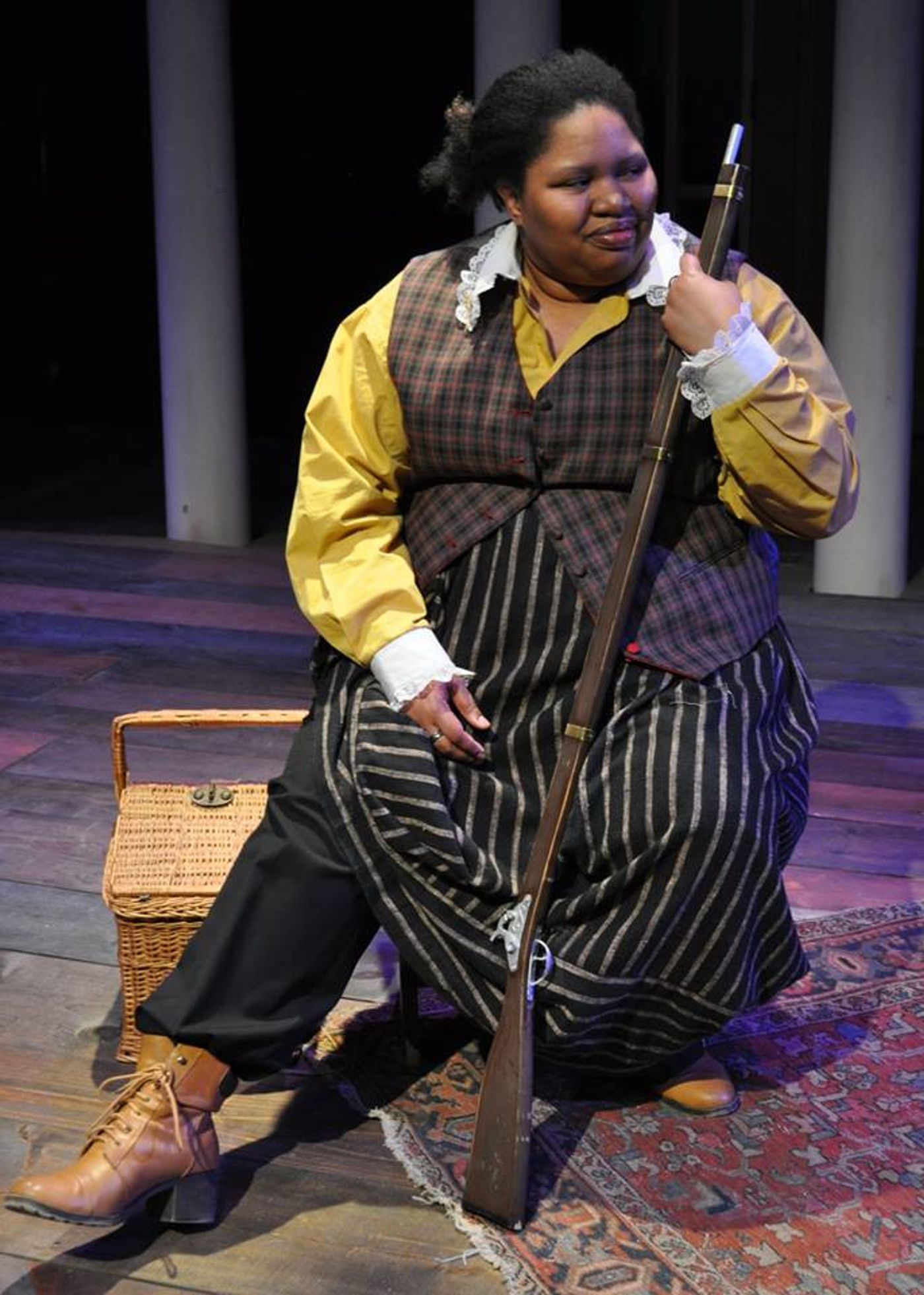 Some of the best comedic moments come from cast members like Brandis Outlaw (as Carlotta Ivanova), Ryan Fortney (as Yepikhodov), Peter Leondedis (as Gaev)and Alan Tilson (as Firs). Outlaw as the eccentric governess is refreshingly zany as she mimes, performs tricks and ventriloquism.
Some of the best comedic moments come from cast members like Brandis Outlaw (as Carlotta Ivanova), Ryan Fortney (as Yepikhodov), Peter Leondedis (as Gaev)and Alan Tilson (as Firs). Outlaw as the eccentric governess is refreshingly zany as she mimes, performs tricks and ventriloquism.
Fortney, as the estate clerk, is fraught with misfortune as he literally stumbles his way through seeking the affections of the maid Dunyasha (played by Elaine Christensen). Leondedis, as Madame's well-meaning brother, hits the mark by having something to say at always the wrong time. Tilson as the increasingly senile manservant speaks to the decay of order as he totters toward the decline of an age for which many of the characters are nostalgic.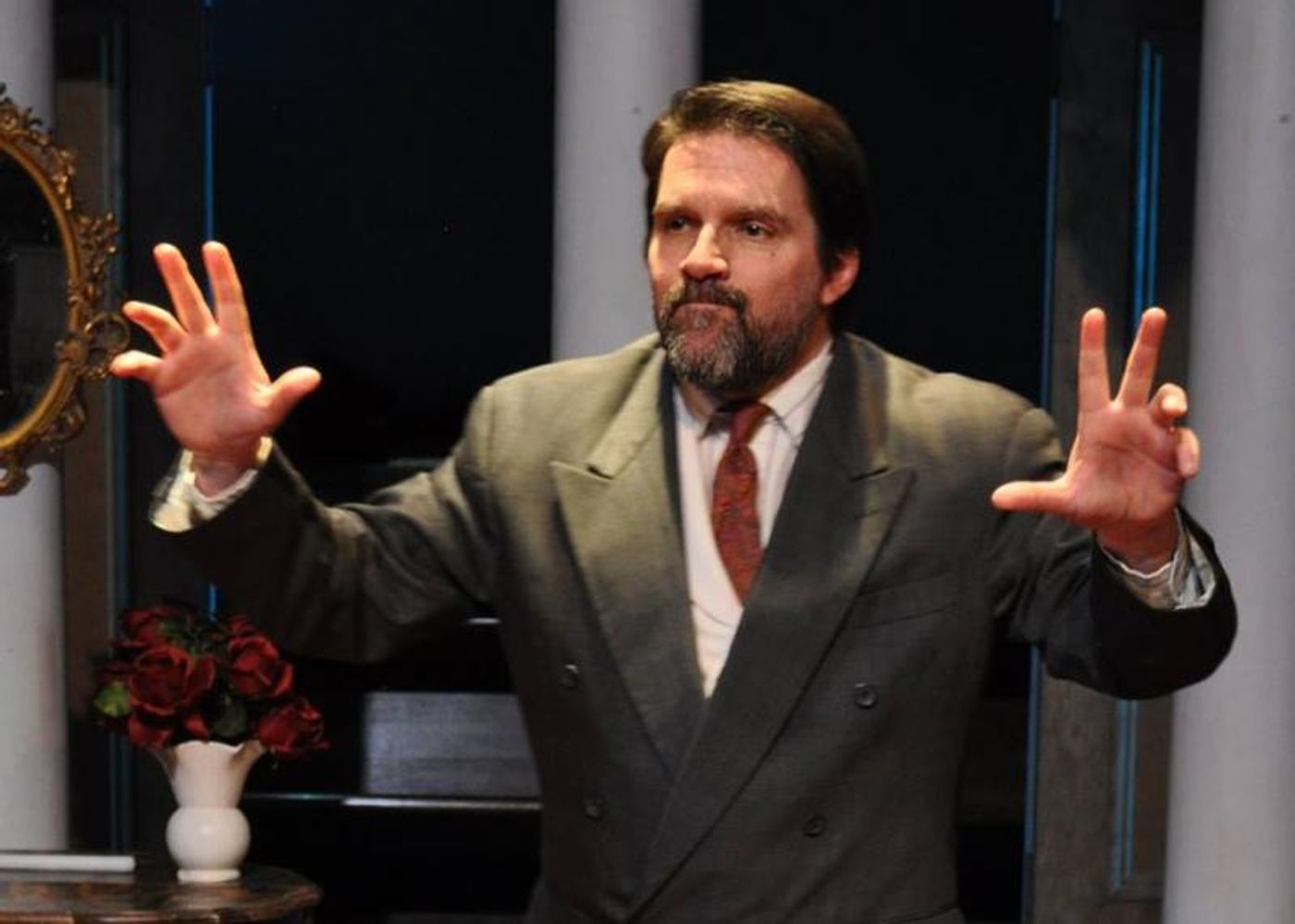
Christensen has a distinct stage presence as the rather provocative maid who flirts with both Yepikhodov and Yasha (played by Christopher Preyer). Preyer prey's on the maid's coyness with the stealth of a forest predator while still keeping a nasty eye on Carlotta. The ensemble is complete with the talents of Curtis Smith (as Simonov-Pishchik), John Van Winkle (Passerby/Post Office Clerk), and Justin Speer (Stationmaster). Smith, as another failing aristocrat, is warm in his attempts to rectify his financial decline, but in the end fritters away his time socializing and lounging around. Speer's appearances are quick but concise. Van Winkle shows great potential as rather clumsy characters, but makes the most of the time he has on stage. 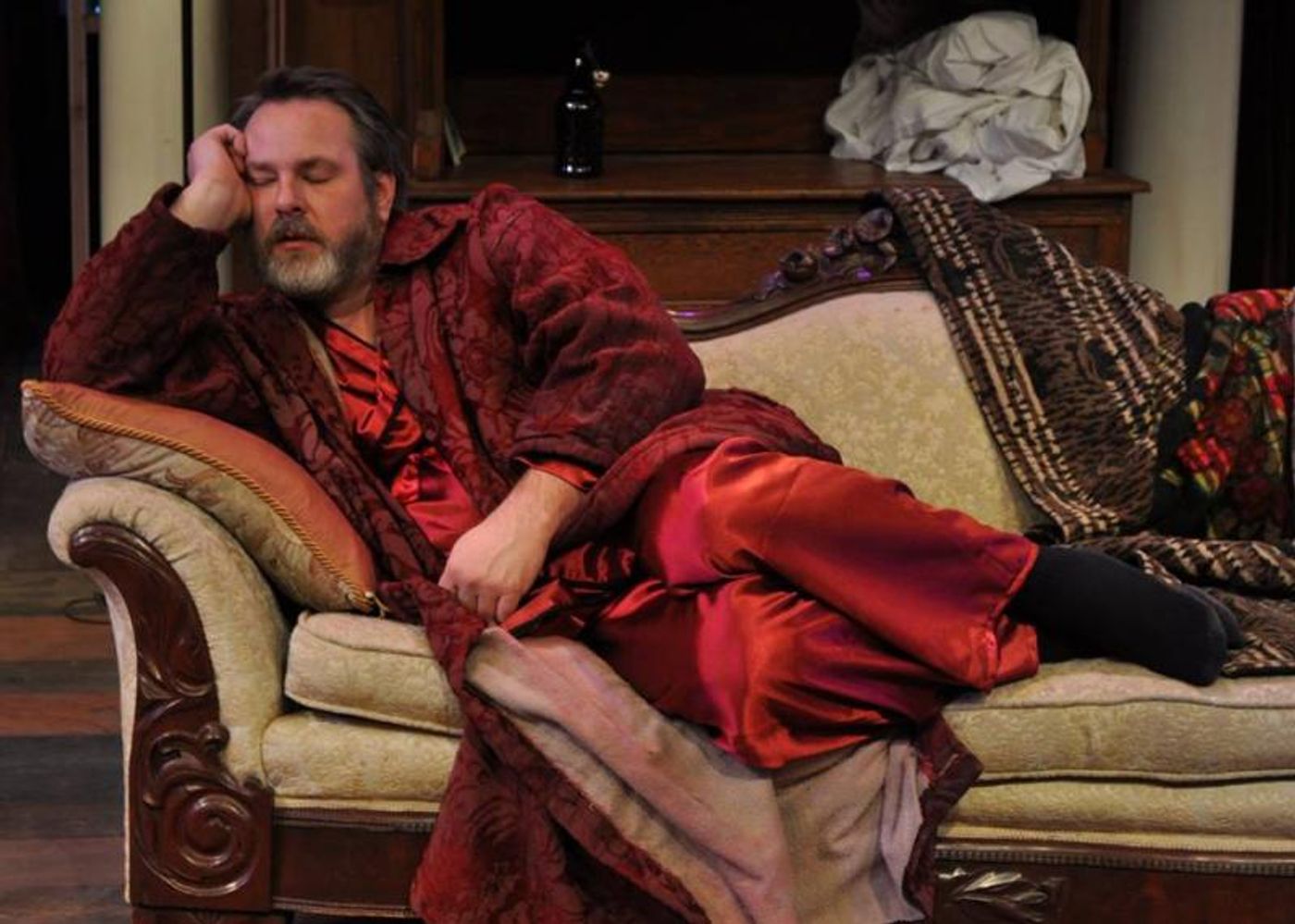
"The Cherry Orchard" runs January 17th through January 27th at Metropolitan Ensemble Theatre in the Warwick Theatre, 3927 Main St, Kansas City, MO 64111. 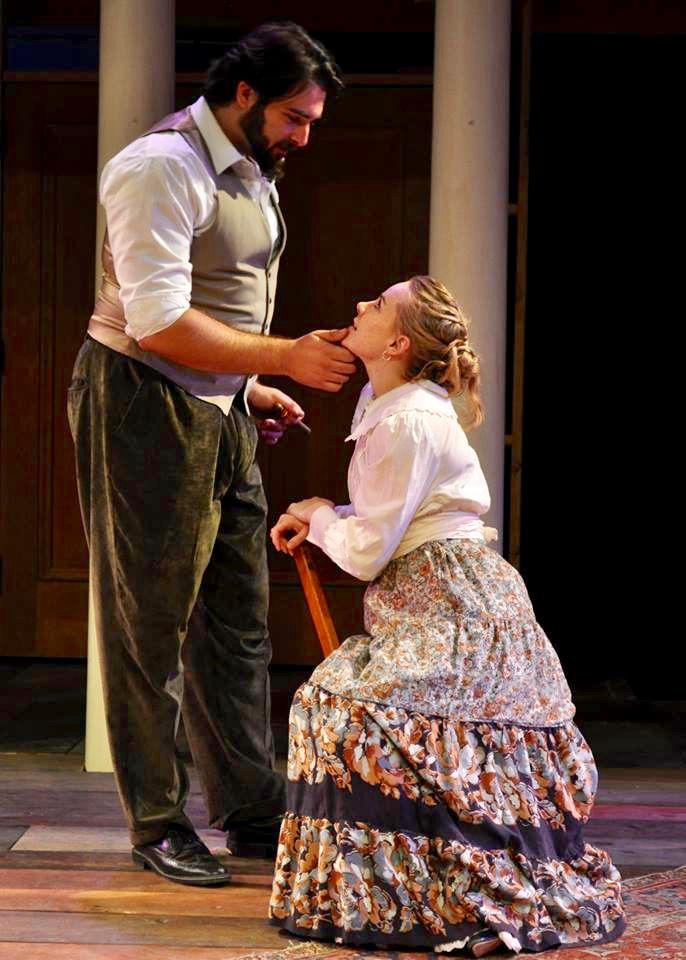
There is ample parking behind the building. For tickets, call 816-569-3226. Visit www.metkc.org for more information or to purchase tickets online.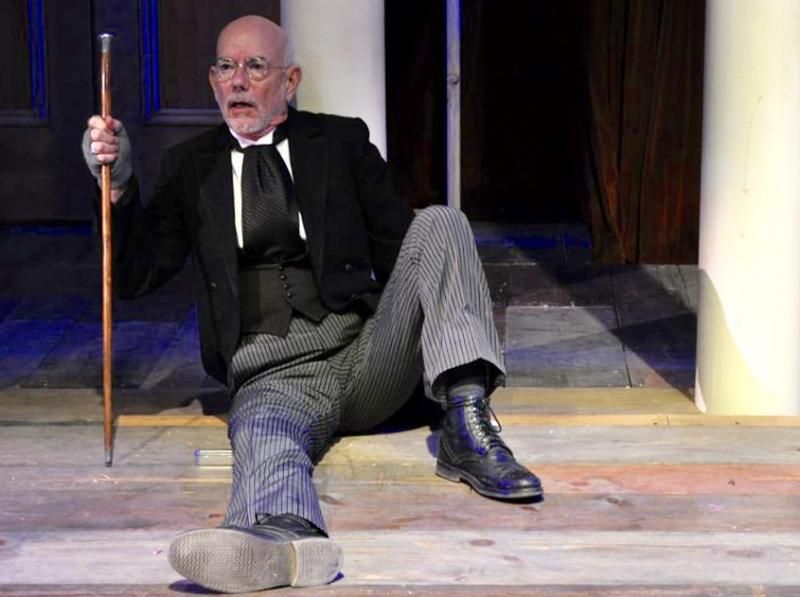
Photos courtesy of MET
Reader Reviews
Videos

